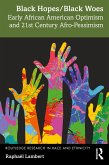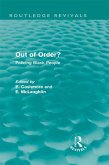Corruption in Society: Multidisciplinary Conceptualizations is the first book to address the notion of corruption in a truly multidisciplinary manner, augmented with empirical evidence. The prevalent definition in books and articles on corruption is that it is a dishonest or fraudulent conduct by those with political and/or economic power, typically involving bribery. This political-economy or public choice denotation, while very useful, is inadequate for a comprehensive understanding of the concept because the notion of corruption appears in every discipline. For example, in the field of chemistry, chemical corruption concerns (a) the incorporation of defective compounds into experiments to better simulate conditions on the early-Earth and to help us understand how the first molecules of life formed and (b) how to make chemicals appear safer, sometimes dodging restrictions on their use, by minimizing the estimates of how much is released into the environment. In order to address this shortcoming, this book provides a discipline-by-discipline conceptualization of corruption buttressed with evidence from the discipline.
Bitte wählen Sie Ihr Anliegen aus.
Rechnungen
Retourenschein anfordern
Bestellstatus
Storno









